On Camera - The Mustard Makers
1973 , Norwich (Norfolk)
Cat no. 134
No video
There’s no web video for this work.
Please do get in contact to discuss other ways you could view this work.
A history to the production of Colman's mustard.
Boxes of Colman's Mustard, including a label in Japanese. There are interior shots of the modern Carrow Works, the works canteen and then a high-angle shot of Norwich that includes the Cathedral, the 56 acre works and Carrow Abbey. Stoke Mill, the original Colman’s factory telling the story of the expansion of the company in its early years and the history of the Colman family, especially their philanthropy. James Colman and his family actually worked in the mill. Jeremiah James became the M.P. for Norwich as well as serving as Deputy Lieutenant, founding the Eastern Daily Press and serving as a trustee of the local savings bank. The Colman’s also founded a school on Carrow Hill; they had a works canteen, selling food at cost price; they founded a home for single women workers; they provided a company dispensary and in 1872 employed Philippa Flowerday, a fully trained nurse, who is credited with being the first industrial nurse. The Carrow works also had its own fire service, shown in action, and band. The rail and river links to the Carrow works are also shown. Jeremiah's social status is also highlighted. He entertained the Prince of Wales, General Booth and W.E. Gladstone. The operation of the modern factory. Shots of the research laboratory of Colman's and then of the process of manufacturing and packaging mustard.There is little by way of explanation. The printing works, retained for printing labels, and covers the different styles of packaging used over the years. Shots of early mustard pots, tins and advertising material. Other products of the company are shown including starch, laundry blue and mustard baths as well as early baby food. For a time Colman's also bred canaries. Jeremiah Colman donated his collection of paintings of the Norwich School to the Castle Museum and these are shown at length. The film ends with another high-angle shot of Norwich and the Carrow works.
Featured Buildings
Colman's of Norwich, Carrow Works; Carrow Abbey, Norwich.Norwich Cathedral; Stoke Mill
Other Places
Colman's of Norwich Carrow Works
Background Information
The Company. The Colman family had been farming in the surrounding villages in South Norfolk for many years prior to the founding of their flour and mustard milling company. Jeremiah Colman had been flour milling at Magdalen Street since 1804. In 1814 he leased Stoke Mill and began milling mustard. The mill at Stoke also ground wheat. In 1830 Colman’s began to manufacture starch from wheat. The first steam engine was installed in 1845. The Carrow Mill was built in 1854. The site was a good one, being adjacent to both the River Wensum and the port area of Norwich and the new railway station at Thorpe. A siding was run into the heart of the Carrow works. The Stoke Mill was relinquished in 1862. Colman's became a limited company in 1896 with capital of ?1,350,000.From the early 20th century, Colman’s bought out many of its competitors. Orlando James & Co. was bought in 1901, followed by Keen, Robinson & Co. In 1910 Barringer, Wallis and Manners of Mansfield and Moss, Rimmington & Co. of Selby were added to the Colman’s Empire followed by Farrows of Peterborough in 1912. In 1914, Colman’s set up a joint trading company in South America with Reckitt and Sons Ltd. This became known as Atlantis Ltd. In 1919 Colman’s began to manufacture Waverley Oats, late re-named Three Bears' Oats. In 1922 they began to manufacture complete dried baby foods. This was manufactured using the first roller dryer to be used at Carrow. It was sold under the name Almata. The company began the manufacture of soft drinks in 1936. The first was Lemon Barley Water. Colman’s became a public company in 1935 and in 1938 became part of Reckitt and Colman. In 1946, in conjunction with Chivers and Sons Ltd, Colman’s formed MPP (Products) Ltd to manufacture mashed potato powder. This had its origin in the government's urgent demand for potato to be converted into a concentrated form to save on shipping space. The product, when launched on the domestic market, was christened Pom. In 1961 Colman’s and Reckitts purchased Mellors Ltd and in 1964 George Mason & Co. Ltd, the manufacturers of OK Sauce. Ready mixed mustard first appeared in 1963.The Colman Family. Jeremiah was succeeded by his nephew James. James' descendants, especially his son, Jeremiah James who became a partner in 1851, built up the Norwich company. His nephews created the London trading office. Jeremiah James became Mayor of Norwich in 1868 and M.P. for the city in 1871 remaining as such until 1895. He died in 1898.
Sponsor : Colman's Of Norwich
Production company : BBC East
Camera : Peter Doubleday
Camera : Lloyd Hobson
Editor : Michael Stokes
Director : Christopher Lewis
Sound : David Bush
Sound : Bill Scroggie
Producer : Douglas Salmon
Other : Richard King (Dubbing Mixer)
Manifestations
On Camera - The Mustard Makers
Genre: Promotional / History / Television / Documentary
Locations: Norwich (Norfolk)
Description Type: monographic
Related to: BBC
Subject: mustard (food) / Norwich School (art movement) / factories / Colman family, Norwich / Colman's / Carrow Road Fire Brigade / abbeys
Copyright restrictions apply.
Please see our terms of use. Films on this website are provided for personal viewing. Should you wish to use the films in any other way please contact eafa@uea.ac.uk
terms of useThe data for this page was generated on 24/01/2026 09:12:44+00:00. Click to regenerate this page .



